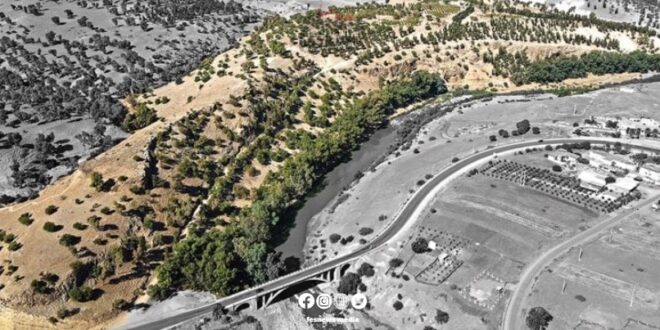Rabat – The Moroccan Ministry of Youth, Culture, and Communication has announced an exceptional archaeological discovery in the village of Oued Beht near the city of Khemisset. An international research team, led by the National Institute of Archaeology and Heritage Sciences in Morocco, has uncovered the largest and oldest agricultural complex in Northwest Africa, dating back to between 3400 and 2900 BCE.
A statement from the ministry explained that this unique discovery spans an area of nearly ten hectares, comparable in size to the Greek city of Troy from the Early Bronze Age. The site provides new insights into the settlement of North Africa between the fourth and third millennia BCE.
The statement noted that this discovery is the result of international collaboration between research institutions from Morocco, Italy, and the United Kingdom. The findings of this research have been published in the prestigious scientific journal “Antiquity”.
Excavations revealed evidence of plant and animal domestication, along with a rich collection of archaeological tools, including decorated pottery and various stone implements. A large number of storage pits and deep warehouses were also found, indicating the development of agricultural practices during that period.
Researchers confirmed that this discovery highlights Morocco’s pivotal role in developing trade networks and cultural exchange across the Mediterranean region during that historical era. It also indicates strong links with contemporary sites in the Iberian Peninsula, suggesting connections between Africa and Europe across the Strait of Gibraltar.
The statement concluded by noting that this discovery contributes to filling a significant knowledge gap in the region’s history, emphasizing the importance of continuing archaeological research in North Africa for a better understanding of its ancient history.
 فاس نيوز ميديا جريدة الكترونية جهوية تعنى بشؤون و أخبار جهة فاس مكناس – متجددة على مدار الساعة
فاس نيوز ميديا جريدة الكترونية جهوية تعنى بشؤون و أخبار جهة فاس مكناس – متجددة على مدار الساعة













